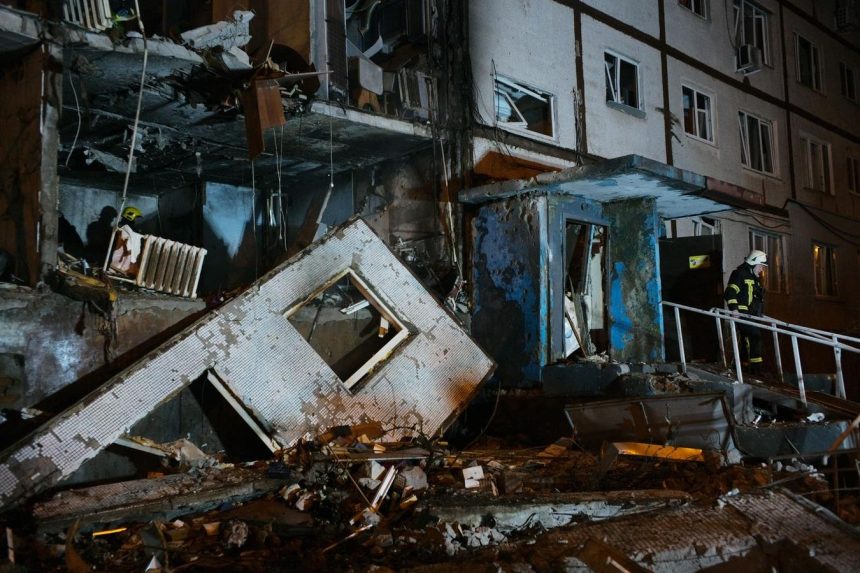Escalating Conflict and Humanitarian Crisis in Ukraine
The war in Ukraine continues to inflict a heavy toll on civilians, with persistent Russian attacks claiming lives and causing widespread destruction. The Kherson and Donetsk regions have witnessed a surge in violence, resulting in numerous civilian casualties and highlighting the brutal reality faced by those living in the conflict zone. The reported execution of Ukrainian prisoners of war by Russian forces underscores the gravity of the human rights abuses occurring amidst the fighting. This act, a clear violation of international law, adds to the mounting evidence of war crimes committed during the conflict. The United Nations has documented a staggering number of civilian casualties since the invasion began, with a significant increase in deaths and injuries attributed to long-range weapon attacks. The use of aerial bombardments has caused a particularly sharp rise in civilian suffering, further exacerbating the humanitarian crisis.
International Involvement and Geopolitical Implications
The ongoing conflict has drawn in international actors, with reports of North Korean troops fighting alongside Russian forces and suffering significant casualties. This development raises concerns about the potential for further escalation and the widening scope of the conflict. The delivery of military hardware from North Korea to Russia further complicates the situation and underscores the challenges in achieving a peaceful resolution. Meanwhile, Slovak Prime Minister Robert Fico’s visit to Moscow for talks with Vladimir Putin sparked controversy, highlighting the delicate diplomatic landscape and the ongoing debate surrounding engagement with Russia. Such visits, while potentially addressing specific national interests, risk undermining international efforts to isolate Russia and hold it accountable for its actions in Ukraine.
Economic and Financial Repercussions
The European Union is preparing another round of sanctions against Russia, aiming to target previously untouched sectors of the Russian economy and individuals involved in propaganda or undermining Ukraine’s territorial integrity. This move signifies the EU’s continued commitment to pressuring Russia through economic measures. Simultaneously, Ukraine has received substantial financial support from the International Monetary Fund, a critical lifeline for the country’s struggling economy. This funding is intended to support essential reforms and help stabilize Ukraine’s finances amid the ongoing conflict. However, the disbursement is conditional on Ukraine’s progress in implementing structural reforms, underscoring the challenges faced by the country in navigating both wartime pressures and the demands of international financial institutions.
Military Aid and Shifting Energy Dynamics
Germany’s delivery of a significant military aid package to Ukraine, including tanks, armored vehicles, and air defense systems, demonstrates the continued international support for Ukraine’s defense capabilities. This assistance is vital in bolstering Ukraine’s ability to resist Russian aggression and protect its territory. The evolving energy landscape presents another complex challenge. Despite efforts to reduce reliance on Russian energy, the European Union’s imports of Russian liquefied natural gas (LNG) have reached record levels, driven by lower costs and market dynamics. This highlights the difficulty of completely decoupling from Russian energy sources in the short term and the need for a multifaceted approach to energy security.
A Moment of Triumph Amidst the Turmoil
Amidst the backdrop of war and geopolitical tensions, Ukrainian boxer Oleksandr Usyk’s victory over Tyson Fury provided a moment of national pride and celebration. Usyk’s dominant performance and unwavering spirit resonated deeply within Ukraine, offering a much-needed boost to morale. This sporting triumph, while a brief respite from the ongoing conflict, served as a powerful symbol of Ukrainian resilience and determination.
Looking Ahead: Uncertainties and Challenges
The situation in Ukraine remains fluid and unpredictable. The ongoing fighting, the humanitarian crisis, and the complex web of international involvement create significant challenges for the future. The path to a peaceful resolution remains elusive, and the long-term consequences of the conflict will continue to unfold in the months and years to come. The international community faces the difficult task of balancing support for Ukraine with efforts to prevent further escalation and address the wider geopolitical implications of the conflict. The resilience of the Ukrainian people and the commitment of international partners will be crucial in navigating these challenges and working towards a more stable and secure future.



